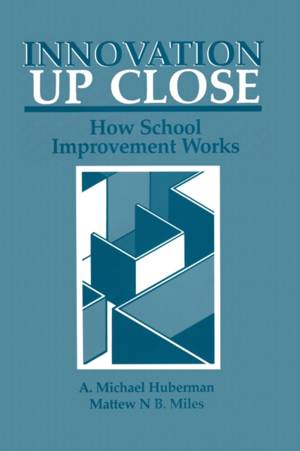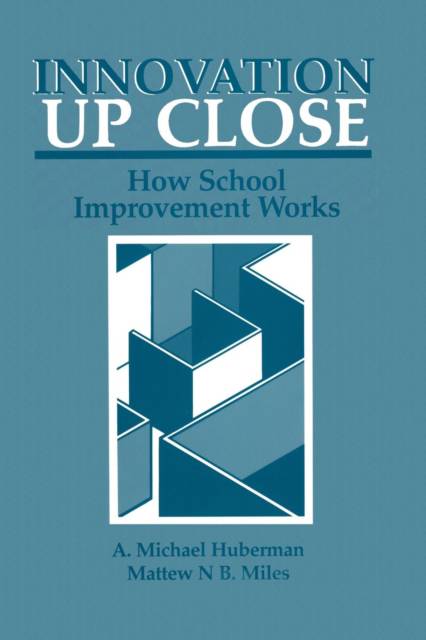
- Afhalen na 1 uur in een winkel met voorraad
- Gratis thuislevering in België vanaf € 30
- Ruim aanbod met 7 miljoen producten
- Afhalen na 1 uur in een winkel met voorraad
- Gratis thuislevering in België vanaf € 30
- Ruim aanbod met 7 miljoen producten
Zoeken
€ 259,45
+ 518 punten
Uitvoering
Omschrijving
School improvement, like motherhood, has many advocates. Everyone is for it, without having to campaign actively on its behalf. And just as the 100% of people who have had mothers think they know how mothering could be done better, so the (nearly) 100% of people who have been pupils in schools, or have even taught in or managed them, think they know how schools can be im- proved. More precisely, they are sure that schools ought to be improved. The trouble is that they propose a staggering, conflicting range of methods of improving the schools, from;'back to the woodshed" to teacher merit pay, a stiffer curriculum, a stronger tax base, reorganization, a more humane climate, "teacher-proof" innovations, community involvement-the list is nearly end- less. Furthermore, the issues are not merely technical, but normative and po- litical. The term improvement is itself problematic. One person's version of improvement is another's version of wastefulness or even of worsening the schools. Furthermore, the versions that win out in any particular school are not Improvement sometimes turns out to be merely a necessarily technically "best. " code word for the directives that administrators have successfully put into place, or for the agreements that teachers have lobbied into being. How much do we really know about school improvement? The available research literature is quite substantial, but not as helpful as it might be.
Specificaties
Betrokkenen
- Auteur(s):
- Uitgeverij:
Inhoud
- Aantal bladzijden:
- 312
- Taal:
- Engels
- Reeks:
Eigenschappen
- Productcode (EAN):
- 9781489903921
- Verschijningsdatum:
- 1/07/2013
- Uitvoering:
- Paperback
- Formaat:
- Trade paperback (VS)
- Afmetingen:
- 156 mm x 234 mm
- Gewicht:
- 471 g

Alleen bij Standaard Boekhandel
+ 518 punten op je klantenkaart van Standaard Boekhandel
Beoordelingen
We publiceren alleen reviews die voldoen aan de voorwaarden voor reviews. Bekijk onze voorwaarden voor reviews.











